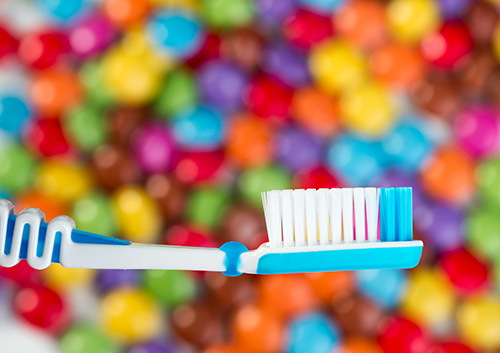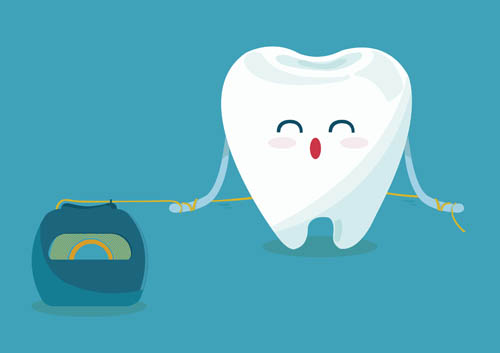 If you have ever suffered from a toothache, you know how excruciating the pain can be. Tooth pain is usually caused by irritation to the nerves in the roots of the teeth, although there are other potential sources of the pain as well. Fortunately, there are ways to both prevent and resolve a toothache, regardless of its cause.
If you have ever suffered from a toothache, you know how excruciating the pain can be. Tooth pain is usually caused by irritation to the nerves in the roots of the teeth, although there are other potential sources of the pain as well. Fortunately, there are ways to both prevent and resolve a toothache, regardless of its cause.
Causes of Tooth Pain
Some of the most common causes of tooth pain include:
1) Tooth Decay – Also known as cavities, tooth decay occurs when bacteria erodes the enamel of the tooth, which can eventually expose the nerve. This is the most common cause of tooth pain.
2) Gum Disease – Also known as periodontal disease, occurs when bacteria populate along and below the gum line.
3) Injury – An injury can include a small chip or a large break in the tooth.
4) Impaction – Teeth often become impacted beneath the surface of the gums. This condition is most common in molars, such as the wisdom teeth. An impacted tooth may cause no pain at all, or it could become extremely painful if it begins to affect the nerves and teeth around it.
Pain Resolution
Determining the source of your pain starts with a trip to the dentist. Usually, your dentist will conduct a thorough examination that may include X-rays. If your X-rays or examination reveal tooth decay, the solution may involve a simple filling, a root canal or even a tooth extraction. Your dentist will decide which option is best for you based on how advanced the tooth decay is, as well whether an infection is present within the tooth.
If, however, gum disease is causing your tooth pain, the solution may be as simple as a root planing and scaling, followed by administration of oral or topical antibiotics to kill the bacteria causing your symptoms. If you have a cracked, chipped or broken tooth, your dentist may resolve your pain by either filling the crack, or covering the tooth with a crown designed to prevent bacteria from entering the tooth.
If your dental X-rays reveal that you have an impacted tooth, you will most likely need to have it extracted to avoid causing damage or misalignment to the other teeth. Impacted teeth can also become infected, which is why it is important to remove impacted teeth before they begin to cause problems.
Prevention
Although there are ways of treating a toothache, the best way to treat it is by preventing it altogether. Some causes of tooth pain are not preventable, such as an impacted tooth or a predisposition to tooth sensitivity. However, tooth decay and gum disease are easily prevented by using good hygienic practices at home and visiting your dentist for regular examinations and cleanings. By brushing your teeth twice a day and flossing, as well as wearing protective mouthguards when participating in high impact activities, you can significantly decrease your chances of developing tooth pain in the future.









 Perhaps you don't even know you grind your teeth. Maybe a spouse or loved one woke you up in the middle of the night and made you aware of what was happening.
Perhaps you don't even know you grind your teeth. Maybe a spouse or loved one woke you up in the middle of the night and made you aware of what was happening. Snoring may not be something you take seriously. You might even laugh or joke about it. But the fact is, anytime you or your partner snore to the point of waking, it could be a sign of serious health problems.
Snoring may not be something you take seriously. You might even laugh or joke about it. But the fact is, anytime you or your partner snore to the point of waking, it could be a sign of serious health problems. If you suffer from dental anxiety, a visit to our office might seem like a daunting prospect. Perhaps you had a bad experience in the past, but whatever the reason, please know that at our office, there is nothing to be afraid of. We understand you may be anxious about receiving dental treatments, and we’re here to help you have a comfortable, pain-free experience that will put your fears to rest.
If you suffer from dental anxiety, a visit to our office might seem like a daunting prospect. Perhaps you had a bad experience in the past, but whatever the reason, please know that at our office, there is nothing to be afraid of. We understand you may be anxious about receiving dental treatments, and we’re here to help you have a comfortable, pain-free experience that will put your fears to rest. You may not understand it, and the more you think about it the less you want to believe it, but you’re positive you have a cavity, and a painful one, too. How did this happen? You brush twice a day and floss regularly. You rinse with hydrogen peroxide, just like the dentist recommended. In fact, you can’t remember the last time you had a cavity, but you think it was when you were a little kid, back when you ate sugary cereals like Lucky Charms and Cocoa Puffs for breakfast. In all seriousness, you thought only kids got cavities. Weren’t you supposed to have outgrown these things the way teenagers outgrow acne?
You may not understand it, and the more you think about it the less you want to believe it, but you’re positive you have a cavity, and a painful one, too. How did this happen? You brush twice a day and floss regularly. You rinse with hydrogen peroxide, just like the dentist recommended. In fact, you can’t remember the last time you had a cavity, but you think it was when you were a little kid, back when you ate sugary cereals like Lucky Charms and Cocoa Puffs for breakfast. In all seriousness, you thought only kids got cavities. Weren’t you supposed to have outgrown these things the way teenagers outgrow acne? Now that many of the schools are back in session, we would like to remind all of our patients about the importance of scheduling appointments in advance. With school, clubs, sports and family duties to consider, we know that it can be challenging to find time this fall.
Now that many of the schools are back in session, we would like to remind all of our patients about the importance of scheduling appointments in advance. With school, clubs, sports and family duties to consider, we know that it can be challenging to find time this fall.


 Gingivitis is a type of periodontal disease in which only your gums are affected. Gingivitis, according to the American Dental Association (ADA), is a milder and often reversible type of periodontal disease. However, it can lead to periodontitis -- a more destructive and serious disease -- if proper professional treatment and home care aren't put into place. No tissue damage or irreversible bone damage is present in the gingivitis stage of periodontal disease.
Gingivitis is a type of periodontal disease in which only your gums are affected. Gingivitis, according to the American Dental Association (ADA), is a milder and often reversible type of periodontal disease. However, it can lead to periodontitis -- a more destructive and serious disease -- if proper professional treatment and home care aren't put into place. No tissue damage or irreversible bone damage is present in the gingivitis stage of periodontal disease. Brushing your teeth every day keeps them cleaner, improves your breath, and reduces plaque buildup. But did you know that there may be a connection between your dental health and chronic illness? Some scientific evidence suggests that poor dental health may be linked to cardiovascular disease. Although more research is needed to explore this association, it provides yet another reason to brush your teeth twice per day, floss daily, and visit your dentist regularly.
Brushing your teeth every day keeps them cleaner, improves your breath, and reduces plaque buildup. But did you know that there may be a connection between your dental health and chronic illness? Some scientific evidence suggests that poor dental health may be linked to cardiovascular disease. Although more research is needed to explore this association, it provides yet another reason to brush your teeth twice per day, floss daily, and visit your dentist regularly. If you have missing teeth, it is crucial to replace them. Without all your teeth, chewing and eating can destabilize your bite and cause you discomfort. Dental implants are a great option for replacing missing or badly diseased teeth. A dental implant offers comfort, support, stability, and is as close to a natural tooth that a restoration can be.
If you have missing teeth, it is crucial to replace them. Without all your teeth, chewing and eating can destabilize your bite and cause you discomfort. Dental implants are a great option for replacing missing or badly diseased teeth. A dental implant offers comfort, support, stability, and is as close to a natural tooth that a restoration can be. Bad breath, also called halitosis, can result from poor dental health habits and may be a sign of other health problems. Bad breath can also be made worse by the types of foods you eat and other unhealthy lifestyle habits. You may not even be aware of your own bad breath, so if you’re concerned you may be suffering from it, talk to our team. We can help identify the cause and, if it’s due to an oral condition, develop a treatment plan to treat it.
Bad breath, also called halitosis, can result from poor dental health habits and may be a sign of other health problems. Bad breath can also be made worse by the types of foods you eat and other unhealthy lifestyle habits. You may not even be aware of your own bad breath, so if you’re concerned you may be suffering from it, talk to our team. We can help identify the cause and, if it’s due to an oral condition, develop a treatment plan to treat it. In honor of June Dairy Month, our team would like to thank all of our hard working families in the Dairy Industry. You make us proud!
In honor of June Dairy Month, our team would like to thank all of our hard working families in the Dairy Industry. You make us proud! One word nobody wants to hear when they visit the dentist is Cavity! That’s right, the dreaded cavity; but what exactly is a cavity and how do you get one? A cavity is a hole that develops in a tooth when the tooth begins to decay. It’s important to get a cavity filled as soon as it’s detected so that it does not grow bigger.
One word nobody wants to hear when they visit the dentist is Cavity! That’s right, the dreaded cavity; but what exactly is a cavity and how do you get one? A cavity is a hole that develops in a tooth when the tooth begins to decay. It’s important to get a cavity filled as soon as it’s detected so that it does not grow bigger.